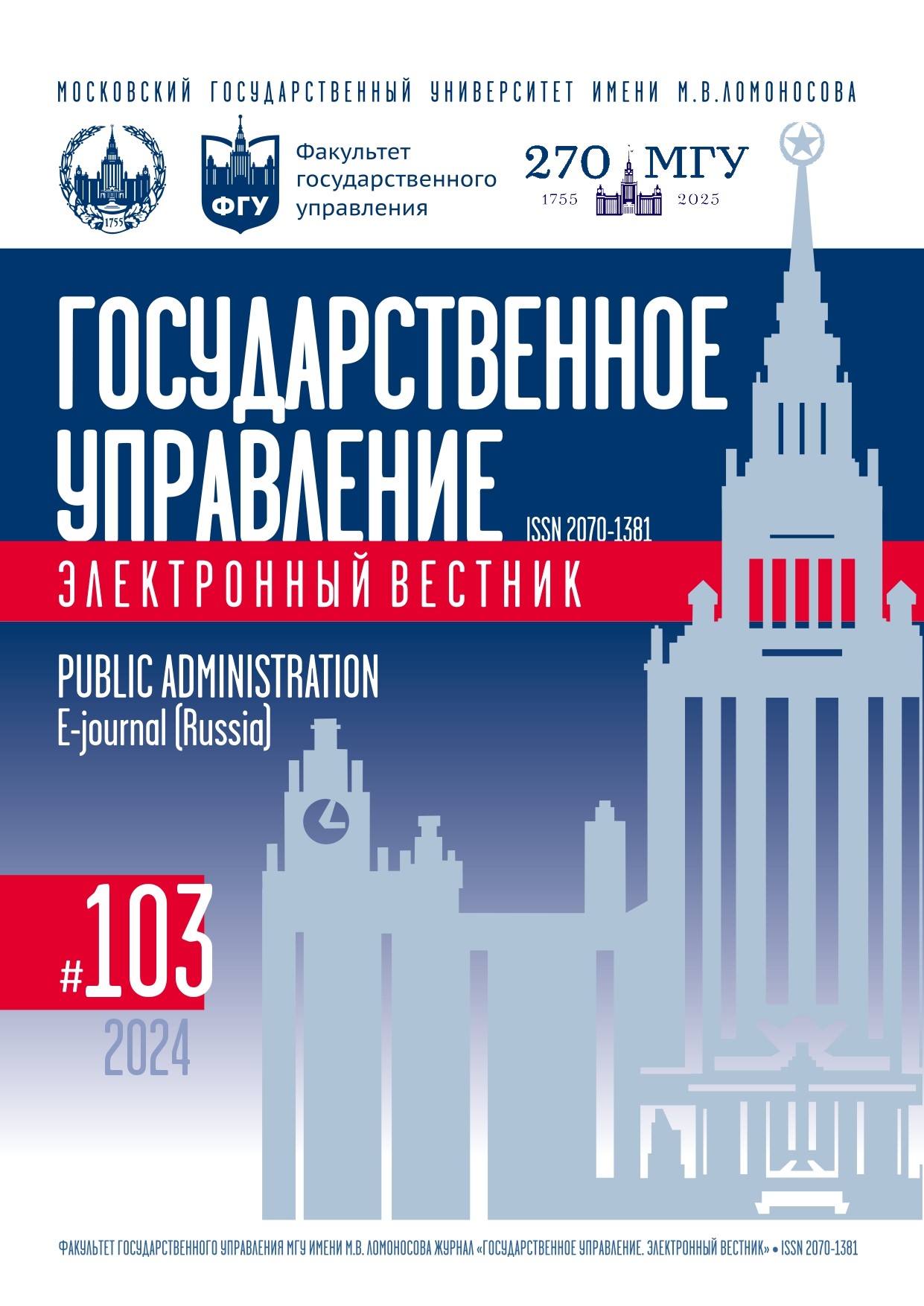Analysis of Japan’s Experience of Implementing Technological Sovereignty Strategy
Keywords:
Technological sovereignty, Japan, economic stability, advanced technology, patent, international trade, economic algorithm.Abstract
The article discusses the purpose of technological sovereignty of each state and its role for economic sustainability. The essence of technological sovereignty in the aspect of various scientific approaches is revealed as well as the boundaries of the sovereignty type under consideration are determined, taking into account production and knowledge-intensive components. Attention is focused on the features of Japan’s transition from a state in isolation to a state interacting with the outside world through technology. The essence of Japan’s approach to ensuring its own economic stability against the background of technological production is revealed. Japan’s place in the world rankings is considered in terms of technology and the number of registered patents for inventions. The indicators of capital investments, industry priorities, labor force in technological industries, the level of exports of goods and services from GDP, the trade balance from GDP, the level of exports of high technologies for 2020–2022 against the background of strengthening Japan’s technological sovereignty are analyzed. The forecast estimates of the technological future of Japan are determined, taking into account the priority in the national economy and the specifics of entering the foreign market with a new technological development. These forward-looking estimates take into account the specifics of the import of raw materials and their intended purpose to ensure technological sovereignty in the foreseeable future. As a result, there is a high probability of having a certain economic algorithm that allows the Japanese economy to restore the desired stability indicators in a short time. Therefore, it is necessary to conduct applied research in order to identify the essence of the economic algorithm used by Japan to strengthen technological sovereignty and ensure economic stability in a short time for subsequent possible adaptation in the Russian economy.
References
Афанасьев А.А. Технологический суверенитет как научная категория в системе современного знания // Journal of Economics. 2022. Т. 12. № 9. С. 2377–2394. DOI: 10.18334/epp.12.9.116243
Бирюков Н.Г., Сафонова А.И., Толмачева Е.И. Влияние научно-технического прогресса на эволюцию японского общества // Этносоциум и межнациональная культура. 2021. № 4(154). С. 54–63.
Варфаловская Р.А. Япония: экономическая динамика и внешняя торговля // Россия и Азия. 2019. № 3(8). С. 33–44.
Гамза Л.А. Япония в борьбе за чипы в Восточной Азии // Восточная Азия: факты и аналитика. 2023. № 2. С. 30–47. DOI: 10.24412/2686-7702-2023-2-30-47
Дементьев В.Е. Технологический суверенитет и приоритеты локализации производства // Terra Economicus. 2023. Т. 21. № 1. С. 6–18. DOI: 10.18522/2073-6606-2023-21-1-6-18
Квинт В.Л., Новикова И.В., Алимурадов М.К., Сасаев Н.И. Стратегирование технологического суверенитета национальной экономики // Управленческое консультирование. 2022. № 9(165). С. 57–67. DOI: 10.22394/1726-1139-2022-9-57-67
Корнеев К.А. Внутренняя энергетическая политика Японии: новый этап развития // Восточная Азия: прошлое, настоящее, будущее: Материалы 7-й международной конференции молодых востоковедов. М.: Федеральное государственное бюджетное учреждение науки Институт Дальнего Востока Российской академии наук, 2020. С. 149–159. DOI: 10.24411/9999-043A-2020-10017
Костюкова К.С. Политика цифровой трансформация Японии на примере развития технологии искусственного интеллекта // МИР (Модернизация. Инновации. Развитие). 2023. Т. 10. № 4. С. 516–529. DOI: 10.18184/2079-4665.2019.10.4.516-529
Литвинова Л.В., Кузнецов М.А., Наумова ЕС. Цифровизация экономики в современной Японии // Международный журнал гуманитарных и естественных наук. 2022. № 4–4. С. 77–80. DOI: 10.24412/2500-1000-2022-4-4-77-80
Медведкина Е.А., Медведкин Т.С. Научно-технологическая парадигма глобального инновационного развития // Большая Евразия: развитие, безопасность, сотрудничество: Материалы XVIII Международной научной конференции в рамках Общественно-научного форума «Россия: ключевые проблемы и решения». М.: Институт научной информации по общественным наукам РАН, 2019. Вып. 2. Ч. 2. С. 826–830.
Сумина Е.В., Зябликов Д.В. Технологические приоритеты стратегического развития региона в условиях цифровой индустриализации // Вопросы инновационной экономики. 2020. Т. 10. № 3. С. 1535–1554. DOI: 10.18334/vinec.10.3.110663
Файков Д.Ю., Байдаров Д.Ю. На пути к технологическому суверенитету: теоретические подходы, практика, предложения // Экономическое возрождение России. 2023. № 1(75). С. 67–82. DOI: 10.37930/1990-9780-2023-1-75-67-82
Шестопал С.С., Мамычев А.Ю. Суверенитет в глобальном цифровом измерении: современные тренды // Балтийский гуманитарный журнал. 2023. Т. 9. № 1(30). С. 398–403. DOI: 10.26140/bgz3-2020-0901-0098
Corrado C., Haskel J., Jona-Lasinio C., Iommi M. Intangible Capital and Modern Economies // The Journal of Economic Perspectives. 2022. Vol. 36. Is. 3. P. 3–28. DOI: 10.1257/jep.36.3.3
Ehteshami A. The BRI and Its Rivals: The Building and Rebuilding of Eurasia in the 21st Century // PRISM. 2022. Vol. 10. Is. 1. P. 23–39.
Hensel N. Challenges and Opportunities in Global Supply Chains: The Role of Critical Minerals // PRISM. 2023. Vol. 10. Is. 3. P. 59–80.
Rountree C.M. The Final Countdown? — Charting a New Course for Capital Ships in Pacific War Plans // Naval War College Review. 2022. Vol. 75. Is. 1. URL: https://digital-commons.usnwc.edu/nwc-review/vol76/iss1/4

